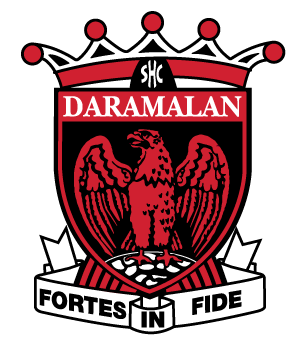Languages T
Languages
The Senior Languages courses aim to develop the four language skills of listening, speaking, reading and writing and to give students the confidence to communicate orally and in writing with relative ease on the topics studied.
The courses also aim to:
- provide students with an insight into and an understanding of the relationship between language, thought and culture which enable them to develop intercultural perspectives and a knowledge of the customs, history and cultural heritage of the country;
- provide students with the opportunity to examine the nature of present day Australian society, thus enabling them to more readily understand the values and attitudes of people of different linguistic and cultural backgrounds
- lead students to reflect on the workings of their own language and on communication in general.
The Continuing courses in French, German and Japanese are designed for those who have studied one of these languages previously, usually to Year 10 level, and who wish to continue to study the language as a tertiary accredited subject.
Students who are contemplating a career in travel, hospitality, tourism, trade or business, or who have a personal interest in learning French, German or Japanese, should consider continuing their language studies. There is growing recognition by business and government that Australia’s success in pursuing all potential avenues in trade, diplomacy and tourism will be increasingly dependent on our ability to communicate and conduct business in other languages.
Language courses may be taken as a Major or a Minor. The Minor course consists of two consecutive semester units while the Major consists of four consecutive semester units.
Students in all three languages will study the following units.
- The Individual’s Experience
- Society and Community
- The World Around Us
- Lifestyle and Traditions
Continuing French
The aim of this course is to develop students’ ability to understand both spoken and written French and to communicate effectively. Units cover topics including Daily Life and Leisure, Describing People and Places, Education and Future Plans, Health and Fitness, Travel and Tourism, The Media, Environmental Issues, research into French Film, Literature, Art and History. Units are structured to provide progressive development and revision of grammar required to Year 12 level, as well as to expose students to different registers of written and spoken language.
Course work includes the use of newspaper articles, magazines, television programs, films, songs, poems and French cuisine as additional tools for exploring issues of interest and aspects of French culture.
Continuing German
This course recognises that Language learning is a dynamic process through which students broaden their understanding, not only of language but also identity and culture. The aim is to enable students to understand and communicate proficiently in German on topics such as Family and Relationships, Travel and Tourism, Leisure, Health, Traditions and Festivals, History, Entertainment, and Environment and to display a sociocultural awareness. The increasingly complex grammatical structures and language conventions are developed progressively throughout the Course.
Course work includes the study of newspaper articles, statistics, films, songs, literature, advertisements, artworks and also digital media
Continuing Japanese
This course aims to extend students’ communicative skills in both spoken and written Japanese.
Topics include Personal History, Hobbies, Relationships, Part-time Jobs, Tourism and Travel, Healthy Lifestyles, Traditional Stories, and Future Plans and Goals.
Units are designed to provide progressive development and revision of increasingly complex grammatical structures and language conventions. Aspects of Japanese culture are embedded in the language topics covered.
On completion of the course students should be able to understand and communicate effectively in Japanese on the topics studied, showing awareness of relevant socio-cultural issues. They should read and write with confidence in Hiragana and Katakana, along with those Kanji required for each unit.
